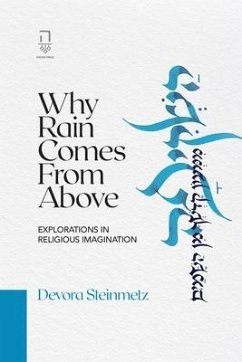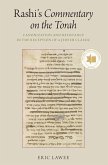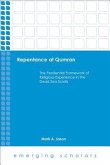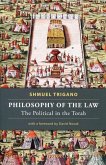In Why Rain Comes From Above: Explorations in Religious Imagination, Devora Steinmetz invites the reader into the imaginative space created by deep engagement with biblical and rabbinic texts. Each of these six poetic and scholarly essays leads us through a web of texts, drawing us into stories, images, and experiences that open us to new ways of thinking and to new worlds of meaning. Steinmetz's explorations show us how imaginative engagement as a form of religious reading can transform our relationship to the world around us, awaken us to the ethical commitments to which we are called, and give us ways of thinking about our lives, our world, and God.
Hinweis: Dieser Artikel kann nur an eine deutsche Lieferadresse ausgeliefert werden.
Hinweis: Dieser Artikel kann nur an eine deutsche Lieferadresse ausgeliefert werden.








